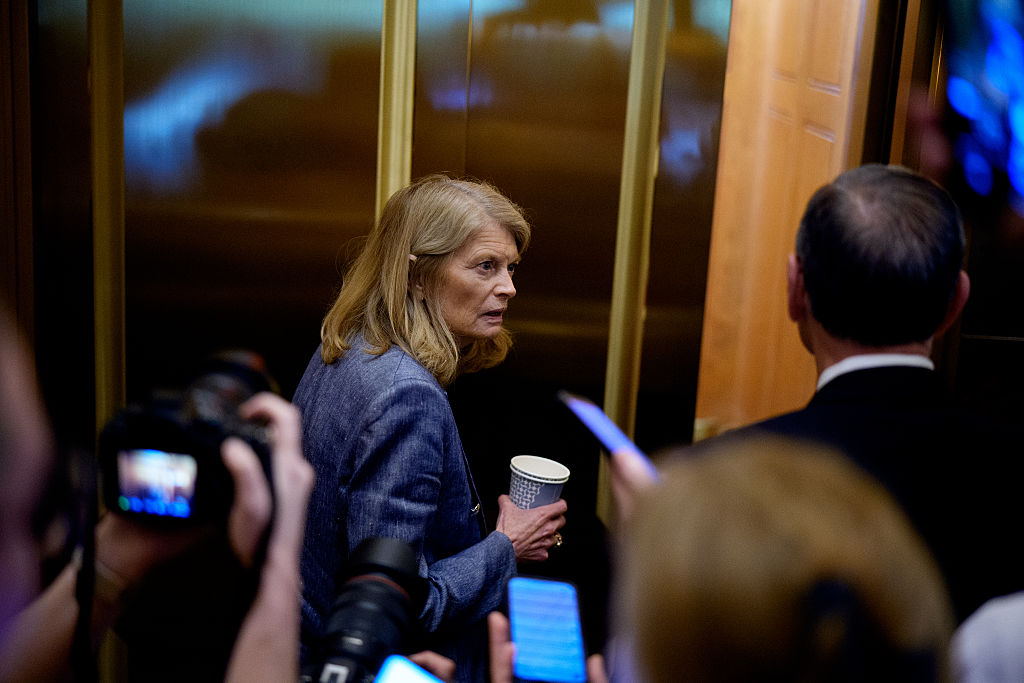A bleary-eyed Lisa Murkowski exited the Republican whip’s office early Tuesday morning with a coffee in hand, after more than 24 straight hours of backroom negotiations over President Donald Trump’s sweeping tax and spending bill. “It’s in the hands of the people that operate the copy machine,” the Alaska Senator quipped, signaling that she planned to flip her vote and deliver the final commitment GOP leaders needed to secure passage.
[time-brightcove not-tgx=”true”]
With that, Senate Republicans pushed Trump’s 940-page “One Big Beautiful Bill Act” across the finish line on a narrow 51-50 vote, with Vice President J.D. Vance casting the tie-breaker. The vote capped a grueling overnight session full of closed-door huddles, hastily scribbled amendments, and a desperate hunt for votes as Republican leaders raced to deliver Trump’s top legislative priority before his self-imposed July 4 deadline.
Only three Republicans—Senators Susan Collins of Maine, Rand Paul of Kentucky, and Thom Tillis of North Carolina—broke ranks to oppose the bill.
The legislation now returns to the House, where its passage remains far from certain. Several House Republicans have voiced alarm over the Senate’s changes—particularly the deeper cuts to Medicaid and a larger projected deficit—warning that the revised bill could struggle to gain support from both hard-line conservatives and vulnerable moderates.
“My hope is that the House is gonna look at this and recognize that we’re not there yet,” Murkowski told reporters after she voted in favor of the bill.
The legislation represents a sweeping rewrite of tax and spending priorities, making permanent the Trump-era tax cuts set to expire at the end of this year and adding new breaks for tipped workers, overtime pay, and factory construction. It also includes deep cuts to Medicaid and nutrition assistance, introduces new work requirements for low-income Americans, and slashes green energy tax credits. The bill would redirect hundreds of billions of dollars toward border enforcement and defense, including $350 billion in new spending and fees for immigration operations.
According to the nonpartisan Congressional Budget Office, the package would add nearly $3.3 trillion to the deficit over the next decade and lead to 11.8 million more Americans becoming uninsured by 2034. Still, most Senate Republicans cast the legislation as a crucial and long-awaited victory.
Senator John Thune of South Dakota, the Republican leader and the chief architect of the bill’s Senate strategy, said the package delivers on Trump’s promises. “The House, I appreciate the narrow margins they have over there and the challenge the speaker and his team have in front of them, but I think we gave them a really strong product,” Thune told reporters after Senate passage.
Now that different versions of the bill have passed both chambers, the House can send the bill directly to Trump for his signature by adopting the Senate version. If the House intends to make more changes to it, Republican leaders from both chambers will have to hammer out a compromise version that can draw enough support for final votes in the House and Senate.

